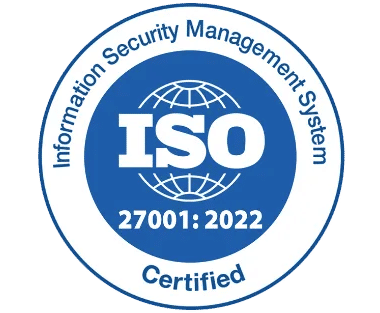Mastering Receipt Management: How to Track and Organize it

At checkout, when the cashier asks, “Would you like a receipt?” most people instinctively decline. Studies indicate that up to 90% of receipts are either discarded or misplaced, making it difficult to keep track of important expenses.
But as a business owner, receipts are more than just scraps of paper—they’re your financial safety net. Come tax season or an audit, those tiny slips can save you big. According to the IRS, businesses should keep receipts for at least three years, and missing documentation can lead to penalties or even fines. In fact, roughly 40% of small businesses get audited due to incomplete or inaccurate financial records. Sure, sorting through receipts isn’t exactly thrilling.
No one enjoys digging through a pile of crumpled slips, trying to make sense of them. But staying organized can prevent costly mistakes. Businesses that track expenses efficiently can reduce tax liabilities by 20-30%, simply by ensuring every deductible expense is accounted for.
So, before you toss that receipt, think twice. It’s not just a piece of paper—it’s proof that your business is on the right track
The Importance of Tracking Business Receipts
Running a business involves more than just making sales and keeping customers happy—it also requires staying on top of your financial records. One key aspect of this is tracking your receipts, even though it’s often overlooked.
Keeping organized records ensures accurate bookkeeping, helps you claim the right tax deductions, and keeps you prepared in case of an audit. Think of receipts as financial proof, helping you stay compliant and avoid unnecessary expenses. In the long run, good record-keeping can protect your business and contribute to its growth.
Maintaining Good Business Records
Keeping receipts is essential for tracking your business expenses and maintaining financial clarity. It gives you a clear picture of where your money is going and helps you make informed decisions. By organizing your records, you can easily answer key questions like:
- Are you overspending in certain areas?
- Are raw material costs lower than expected?
- How is this impacting your profit margins?
- Are you making a profit or just breaking even?
- Should you consider adjusting your prices?
Keeping receipts gives you a clear picture of where your money is going, helping you make smarter financial decisions.
Proof of Sale
Keeping receipts ensures you have a verified record of a completed transaction. If a dispute arises regarding a service or product, the receipt serves as proof that:
- A sale took place.
- It involved the two respective parties.
Receipts are also essential when processing refunds or exchanges, ensuring the correct amount is reconciled with the actual purchase.
Preparing Financial Statements
Receipts are crucial for maintaining accurate business financial records, serving as evidence of both income and expenses. Transparent and well-organized financial statements are key when dealing with creditors or applying for business loans, making transactions smoother and more credible.
Preparing for Tax Returns
When filing taxes, receipts act as proof of deductible expenses, helping to validate claims and avoid discrepancies. If any questions arise regarding the legitimacy of an expense, having receipts readily available allows you to provide the necessary evidence.
How to Keep Track Of Receipts For Mileage Reimbursement
Tracking mileage-related receipts is essential for accurate reimbursements and tax deductions. A well-organized system prevents last-minute stress and ensures you claim every eligible expense. Here’s how to do it efficiently.
Why Keeping Track of Mileage Receipts Matters
- Ensures you get full reimbursement for business-related travel
- Helps you accurately claim tax deductions
- Saves time by avoiding last-minute searches for missing receipts
How to Organize Mileage Receipts Efficiently
- Keep separate folders or envelopes for business and personal expenses
- Store digital receipts in a dedicated cloud folder for easy access
Make Notes on Each Receipt
- Write down the purpose of each expense (e.g., “Client meeting – 50 miles round trip”)
- Avoid confusion by adding details immediately after making a purchase
Set a Reminder to Organize Receipts Regularly
- Schedule a weekly or biweekly time slot to sort through receipts
- Prevent the frustration of a last-minute backlog
Use Binders and Folders for Easy Categorization
Sort receipts by:
- Month for chronological organization
- Expense type (gas, tolls, parking)
- Business trip or client visit for quick retrieval
Simplify Everything with a Digital Tracking Tool
Instead of relying on paper receipts, use Expense Tracker 365, the best tool for business expense tracking.
With Expense Tracker 365, you can:
- Snap photos of receipts and store them digitally
- Log mileage tracking
- Generate detailed reports for reimbursement.
Go Digital with Your Receipts
- Holding onto paper receipts is a hassle—they fade, get lost, or pile up into a mess. The smart move? Go digital. Not only does it keep everything organized, but it also makes expense tracking a whole lot easier.
- Just snap a quick photo with your phone or use a scanner, then upload it to your receipt tracker or business computer. Now you’ve got both a hard copy and a digital backup. Plus, in many cases, digital receipts are perfectly valid for tax filing.
- If your team works remotely or in a hybrid setup, going digital is a no-brainer. Instead of waiting to hand in paper receipts, employees can upload them instantly keeping everything streamlined and efficient.
Pick the Right Receipt Tracker
Top Receipt scanning software for small businesses
Expense Tracker 365
With Expense Tracker 365, all you need to do is snap a photo of your receipt and send it via text—its AI does the rest. The system extracts key details, categorizes expenses based on your company’s policies, and stores them securely. Whether it’s credit card purchases or out-of-pocket expenses, it handles everything seamlessly—without requiring an app download. Pricing starts at just $49.
QuickBooks
A top name in business accounting, QuickBooks ensures smooth receipt tracking for businesses of all sizes. It helps manage everything from small receipts that can easily get lost to client invoices. Real-time dashboards, bank data downloads, and multi-platform availability (Mac, Windows, and mobile) make QuickBooks a powerhouse. Pricing ranges from $15 to $35 per month.
FreshBooks
For entrepreneurs without an in-house CPA, FreshBooks makes accounting easy. It eliminates the hassle of spreadsheets by consolidating all expense data in one place. A standout feature is automatic expense importing—link your account, and your expenses sync instantly. Available on iOS, Android, Windows, and Mac, FreshBooks starts at $15 per month.
Mint
A solid option for freelancers and small businesses, Mint does more than just track receipts. It includes budgeting tools, goal tracking, cash flow monitoring, credit score tracking, and even bill reminders. Plus, it’s completely free and works across iOS, Android, and web browsers.
Expensify
For those who want real-time expense tracking, Expensify is an excellent choice. It lets users scan and log receipts instantly, generates expense reports, and submits them for approval. It even factors in company policies to ensure compliance and deliver accurate reports.
Hurdlr
A powerful expense tracking and tax-saving tool, Hurdlr helps businesses track profits before and after tax deductions. Users can link business accounts and submit tax filings directly to a CPA. This tool is ideal for those who want to automate expense tracking while optimizing tax savings.
Bench
Need an extra hand with bookkeeping? Bench not only tracks your monthly business expenses, but it also imports, reviews, and categorizes them for you. Users receive monthly financial reports for easy cash flow monitoring, eliminating tedious accounting tasks.
Wellybox
The Financial Risks of Poor Receipt Management in Busines
1. Losing Sight of Your Business’s Financial Health
Without clear and organized financial records, it’s tough to get an accurate picture of how your business is doing. You might struggle to track:
- Departmental expenses
- Actual earnings vs. projections
- The true cost of generating revenue
Good bookkeeping keeps you in control, helping you make informed financial decisions.
2. Struggling to Plan for the Future
When your receipts are all over the place, creating a solid business strategy becomes nearly impossible. Without knowing your numbers, how can you set realistic goals or plan for growth? Organized books make it easier to:
- Set financial targets
- Track progress
- Adjust strategies as needed
A well-maintained financial system gives you the clarity needed to grow your business with confidence.
3. Cash Flow Problems
A lack of proper expense tracking can create cash flow issues that sneak up on you. When you don’t have a clear view of your payables and receivables, you might end up struggling to cover operational costs. Automating invoice tracking and collections can help ensure:
- Bills are paid on time
- Invoices are sent promptly
- Cash flow remains steady
With accurate financial tracking, you can anticipate hurdles before they become real problems.
4. Poor Pricing Decisions
If you’re unaware of how much you’re spending, pricing your products or services becomes a guessing game. Disorganized receipts make it harder to:
- Calculate profit margins
- Optimize pricing strategies
- Stay competitive in your market
When your expenses are properly tracked, you can confidently price your offerings to maximize profits.
5. Tax Time Nightmares
Tax season is already stressful enough. But if your receipts are scattered everywhere, you’ll end up spending countless hours scrambling to get things in order—likely at the last minute. This increases the risk of:
- Missing tax deadlines
- Incurring hefty penalties
- Overlooking potential deductions
Keeping your receipts organized year-round ensures a smooth tax filing process, saving you both time and money.
6. Paying Unnecessary Fees
Messy books often lead to costly mistakes, such as:
- Late fees on bills and loans
- Overdraft charges
- Tax-related penalties
Conclusion
Keeping track of business receipts isn’t just about staying organized—it’s about making smarter financial decisions, saving time, and ensuring smooth operations. With Expense Tracker 365, managing receipts is effortless, giving you real-time insights into your spending while eliminating manual hassles.
Start tracking your receipts the easy way—try Expense Tracker 365 today and take control of your business finances!
Frequently Asked Questions
1. Why is receipt management important for my business?
Receipt management helps you keep accurate financial records, simplifies expense tracking, and ensures smooth tax reporting.
2. What are the best ways to track receipts?
Using digital tools and apps like Receipt Scanning Software or an expense tracking tool can help you track and organize receipts efficiently.
3. How can I organize my receipts for easy access?
You can categorize receipts by date, vendor, or expense type. Digital tools allow for easy tagging, storing, and searching for receipts.
4. Should I keep physical copies of receipts?
It’s best to store physical receipts in an organized manner (e.g., filing them by date or category). However, many businesses now opt to scan and store receipts digitally to save space and reduce clutter.
5. What is the best method for storing receipts?
Storing receipts digitally in cloud-based systems ensures easy access, organization, and security. Cloud storage offers backups in case of physical damage or loss.
6. How can I ensure receipts are accurate and compliant?
Regularly check receipts for accuracy, ensure the dates and amounts match, and keep them in compliance with your country’s tax laws or business expense policies.
7. Can receipt management software integrate with accounting tools?
Yes, many receipt management apps integrate with accounting software, simplifying the process of updating financial records and generating expense reports.
8. What’s the best way to handle management of receipts for tax purposes
For tax purposes, it’s crucial to categorize receipts accurately, store them in an organized manner, and maintain them for the required period as per local tax regulations.










_svxLrd-8yH.png)

_2VYSFUTN5m.png)

_JiluXJRGNl.svg)

_2djTKNocf.png)





_Rapo0hRMBy.png)










